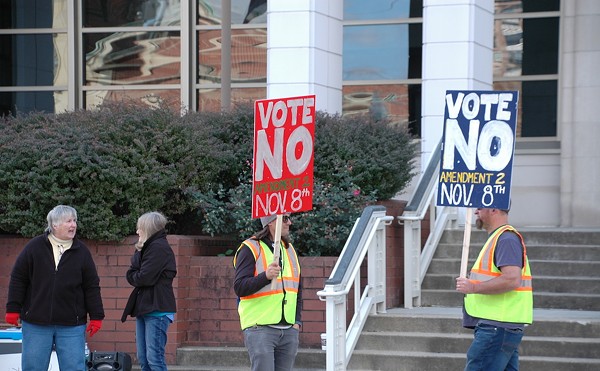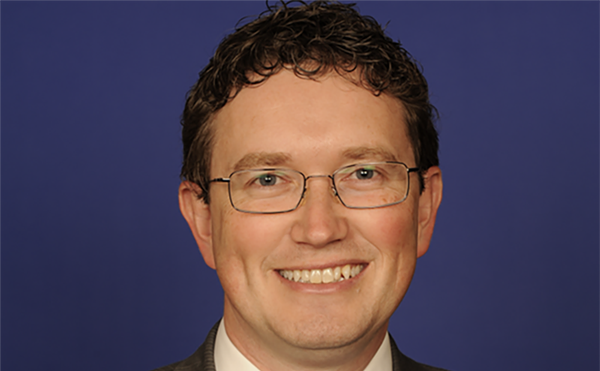Like the governor’s race, many of Ohio’s other races for statewide offices are too close to call. The stakes are high, and go beyond control of the offices themselves: like the governor, the winners of the secretary of state and auditor contests will sit on a seven-member panel that will decide how General Assembly districts are redrawn in 2021.
A big issue in the highest-profile of these races: allegations that online charter school ECOT had been padding its attendance numbers and receiving millions in state funds improperly.
ECOT founder Bill Lager and others associated with the school donated millions to Republicans, including some contributions to Ohio Auditor Dave Yost, who is now looking to move up to become Ohio’s next Attorney General.
Yost later donated to charity the roughly $30,000 his campaign received from those connected to ECOT, though critics say he didn’t act fast enough during his time as auditor to stop the long-running attendance-data-rigging practices the school engaged in.
If he wants to replace Attorney General Mike DeWine, Yost will have to get past Democrat Steve Dettelbach, a former U.S. Attorney in Ohio’s Northern District and a longtime federal prosecutor with the Justice Department. Dettelbach, who also has extensive private legal experience, has repeatedly accused Yost of mishandling the ECOT scandal.
“There are people who make cases and people who make excuses,” Dettelbach said of Yost during an October debate between the two. “If you had spent as much time and effort trying to hold people accountable as you do making excuses, the people and children of Ohio wouldn’t be sold out by $200 million.”
Polling shows that the ECOT controversy may not be enough to dissuade voters from picking Yost. The Republican led 38 percent to 34 percent in a poll by Baldwin Wallace Community Research Institute earlier this month. More than 28 percent of respondents were still undecided, however.
Yost and Dettelbach faced off in a single debate Oct. 22 in Cleveland. You can watch it here.
Other statewide races are closer. The same poll showed the contest for Ohio Secretary of State between Republican State Sen. Frank LaRose and Democrat State Rep. Kathleen Clyde dead-even at 36 percent each. Clyde and LaRose, both 39, have both held their respective offices since 2011. LaRose is a veteran of the U.S. Army Special Forces, while Clyde previously served as deputy legal council for Ohio House Speaker Armond Budish and in the Ohio Secretary of State’s office. Clyde has called for an end to the state’s practice of purging inactive Ohio voters from the state’s registration rolls — a practice LaRose agrees needs to be adjusted. Clyde, however, is willing to go farther than LaRose, it seems — even suggesting automatic voter registration.
“So I kind of wanted to dial that back," she said earlier this month on the state's voter purge practices, "with a healthy balance of maintaining the rolls but also making sure elections are accessible and that we're not purging eligible voters. One way we could do this is move Ohio towards automatic voter registration. Then government and cities are doing the work behind the scenes registering everyone and keeping the rolls up to date.”
Clyde and LaRose debated issues facing the secretary of state's office in Cleveland Aug. 22. You can watch that discussion here.
The race to replace Yost as Ohio Auditor — basically the state’s fiscal watchdog — between Democrat Zack Space and Republican State Rep. Keith Faber is also neck-and-neck. Space is a former U.S. Rep. who also has experience as an attorney in private practice and as special counsel for Ohio Attorneys General Anthony Celebrezze, Jr. and Lee Fisher. Faber has also served in the Ohio Senate and was that body’s president between 2013 and 2016.
The two have tangled over small amounts of taxes each has paid late. Substantive policy debates between the two have largely been dominated by arguments about a $1 billion tax cut for so-called “pass through” corporations that the Ohio Legislature passed while Faber was president of the state Senate. Space says that money could have gone to local government funds, which have lost roughly $1.2 billion in funding in the past eight years. That’s had big implications for both Cincinnati and Hamilton County’s municipal budgets.
Like Yost, Faber’s opponent has also lashed him for his alleged role in the ECOT scandal. Faber received about $36,000 in campaign contributions from those connected with ECOT. His campaign recently donated the money to charity. Faber has countered allegations that he didn’t do enough to hold ECOT accountable by pointing out 2016’s House Bill 2, which required better record-keeping from schools like ECOT. By that time, however, investigations were already well under way into the online charter school. And critics point out that Faber didn’t support other legislative efforts to bring more scrutiny and accountability to ECOT.
Meanwhile Republican State Rep. Richard Sprague and Democrat Rob Richardson, Jr., an attorney and former candidate for Cincinnati Mayor, are squaring off for Ohio Treasurer. That position oversees the state’s collection of its $64 billion in annual revenue and its $21 billion investment portfolio, among other responsibilities.
Richardson’s father is an influential labor leader and president of the Cincinnati NAACP. Richardson, Jr. would like to work on divesting Ohio’s pension system from for-profit prisons, increase loan programs for college students, find ways to increase broadband internet access across the state and incentivize private business to innovate responses to the opioid crisis.
Like Richardson, Sprague has pledged to push private sector responses to the opioid crisis through a so-called “social impact bond” worth $1 million. If a company comes up with solutions to opioid addiction treatment that work better than current options, the state would pay the money back. He also wants to expand financial literacy programs for high school students and encourage alternate career paths that avoid college loan debt.






